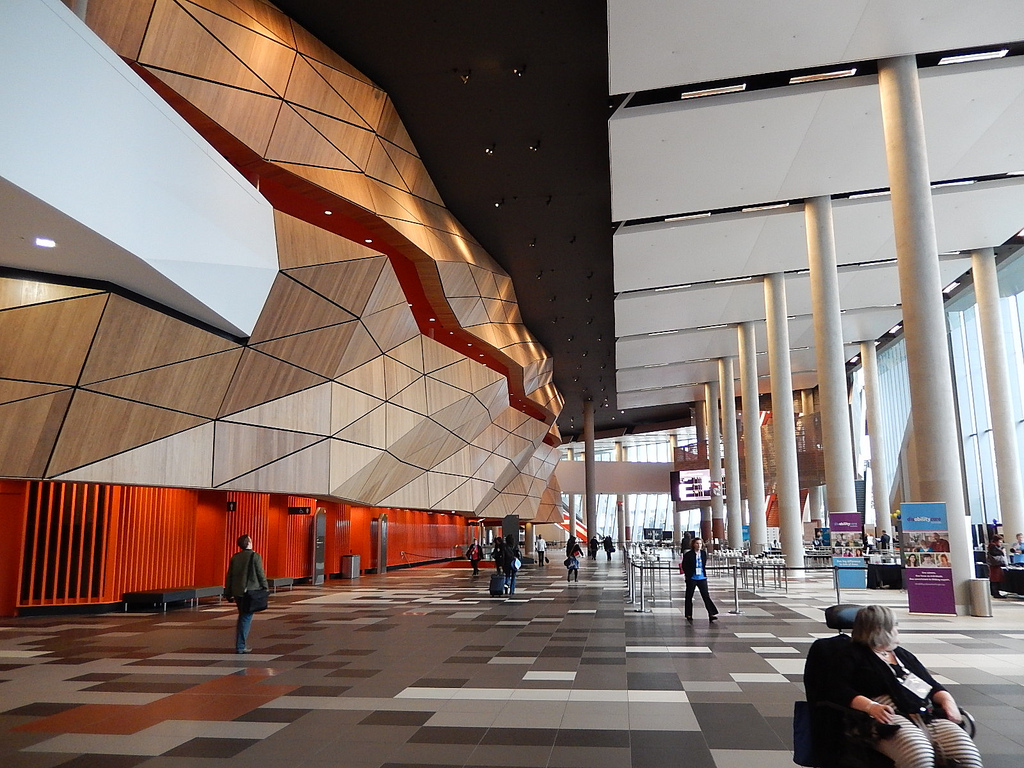
Michael Coghlan https://www.flickr.com/photos/mikecogh/9179980498
Last week I went to CIKM (Conference on Information and Knowledge Management) in Melbourne. I was primarily there for Friday’s ‘[Evaluation of Collaborative Information Seeking and Retrieval]1‘ workshop, at which I presented two short papers from my PhD work. One was based around the kinds of learning indicators we might extract from collaborative information seeking (CIS) tasks, and the other on a temporal analysis of such data in a learning context, and how that might be effectively conducted.
Simon tells us about learning indicators during the IS&R process @ECol2015 #category/conference pic.twitter.com/EXklLiFqJo
— Leif Azzopardi (@leifos) October 23, 2015
On the Monday I also attended a couple of tutorials, one on ‘Data Analytics on Social Media & Social Networks’ – which gave a nice overview of social network analyses – and the other on veracity mining in big data. The latter workshop had some [interesting work]2 around how one can check the veracity of claims from across multiple sources, and the traversal of information (or misinformation, such as rumours) through networks. I was particularly excited to see Jamie Teevan keynoting on the first day, on the topic of ‘slow search’ – the value of increasing information seeking duration (contra the usual search engine aim to reduce the time it takes you to find an answer).
#category/conference is about to start. Follow along with my #blog/SlowSearch keynote online: https://t.co/46WdBbQcqB — Jaime Teevan (@jteevan) October 19, 2015
Liveblogging #category/conference https://t.co/vVOVxXeFLX currently Jamie Teevan keynote on Slow Search.
— Jeff Dalton (@JeffD) October 19, 2015
as we search we reframe needs, see content in new ways, change way we interact with content – vocab & results diversify @jteevan #category/conference
— Simon Knight (@sjgknight) October 19, 2015
That included a couple of nice social-sciency manipulations of search engine interactions, or information seeking contexts
Bing Distill – SQ&A via queries & community created answers to those queries https://t.co/yzOAgMtNcR – interesting #category/conference — Simon Knight (@sjgknight) October 19, 2015
Will #blog/crowdsourcers behave maliciously for you? Cool #blog/psychology manipulation from @jteevan et al https://t.co/viBibNJFC1 #category/conference — Simon Knight (@sjgknight) October 19, 2015
A couple of talks through the conference made reference to the identification of factive or assertive statements – statements that either make a factual claim, or assume a fact – and how such information might be used.
http://t.co/AKR24chOQb …ClaimBuster examines any transcript to find sentences that should be fact checked #category/conference
— Simon Knight (@sjgknight) October 18, 2015
BiasWatch: […] Discovering and Tracking Topic-Sensitive Opinion Bias in Social Media http://t.co/wL0hZbBqos cc @regis_alenda #category/conference — Dr. Bisounours (@BisounoursJp) October 19, 2015
news suggestions for #blog/wikipedia entities https://t.co/TxaNvKJr5n #category/conference/cikm15 Like @edsaperia #blog/openaccess reader https://t.co/OgmsvS3xUW @fetahubesnik
— Simon Knight (@sjgknight) October 20, 2015
Linguistic Models for Analyzing and Detecting Biased Language https://t.co/oDWxX3eGfR Using #blog/wikipedia edit history – v cool
— Simon Knight (@sjgknight) October 20, 2015
For example, one talk discussed ‘[claimbuster]3‘ which draws in US presidential debates, and flags those sentences which are most ‘fact checkable’, with an aim to highlight the claims that fact-checking organisations should focus on (and reduce their filtering load). I can see some potential application of this kind of approach within education, and will publish a blog on that soon. CIKM also wins the prize for most surreal conference dinner location (aquarium) – I was sat next to the Crocodile…
Dinner companion. #category/conference pic.twitter.com/3QVqJ330P4 — I am K (@vanessa_murdock) October 21, 2015